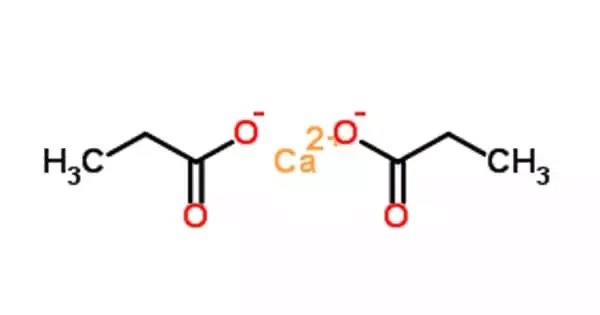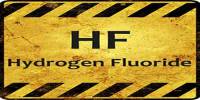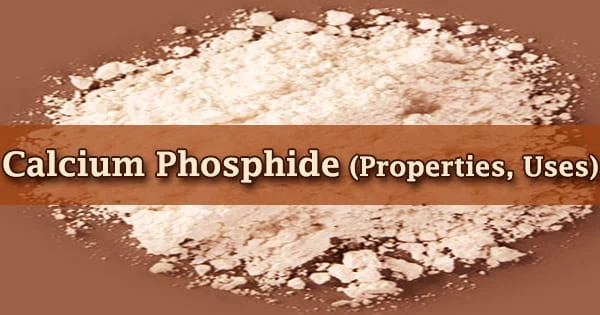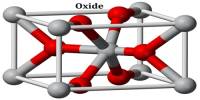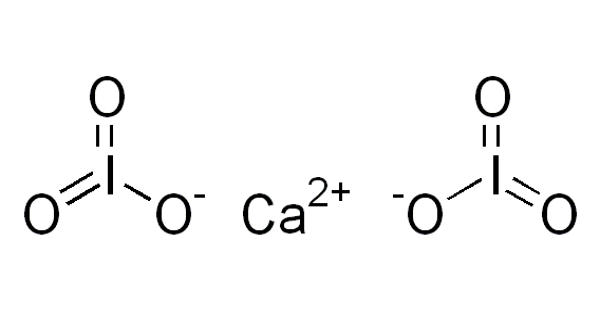Calcium propanoate or calcium propionate has the formula Ca(C2H5COO)2. It is a calcium salt of propanoic acid (also called propionic acid). It is the calcium salt of propanoic acid. It is widely used as a food preservative due to its ability to inhibit the growth of mold and other microbes.
It works by inhibiting microbial enzymes, extending shelf life. Calcium propanoate is also used in animal feed and pharmaceuticals. It occurs naturally in some foods like Swiss cheese. Though generally recognized as safe (GRAS), high consumption may cause digestive or behavioral issues in sensitive individuals. It is odorless, white, and soluble in water. In agriculture, it helps preserve silage.
Properties
- Chemical formula: C6H10CaO4
- Molar mass: 186.2192 g/mol
- Appearance: White crystalline solid
- Melting point: 300 °C
- Solubility in water: 49 g/100 mL (0 °C), 55.8 g/100 mL (100 °C)
- Solubility: slightly soluble in methanol, ethanol, insoluble in acetone, benzene
Natural Occurrence
Propionic acid is naturally produced in the human gut and some dairy products (via fermentation), but calcium propanoate does not occur naturally in significant quantities.
Industrial Production
Produced by neutralizing propanoic acid with calcium hydroxide or calcium carbonate:
2 CH3CH2COOH + Ca(OH)₂ → Ca(CH3CH2COO)₂ + 2 H₂O
Safety and Toxicology
- Generally regarded as safe (GRAS) by the FDA.
- In large quantities, it may cause gastrointestinal irritation or allergic reactions in sensitive individuals.
- Approved for use in food in many countries (with regulated limits).
Uses
As a food additive, it is listed as E number 282 in the Codex Alimentarius. Calcium propionate is used as a preservative in a wide variety of products, including: bread, other baked goods, processed meat, whey, and other dairy products. In agriculture, it is used, amongst other things, to prevent milk fever in cows and as a feed supplement.
- Food Industry (E-number: E282): Common preservative in baked goods, bread, cakes, and cheese to prevent mold and bacterial spoilage.
- Animal Feed: Used in dairy cow feed to prevent mold in stored grains and silage.
- Pharmaceuticals and Cosmetics: Occasionally used as a preservative.
